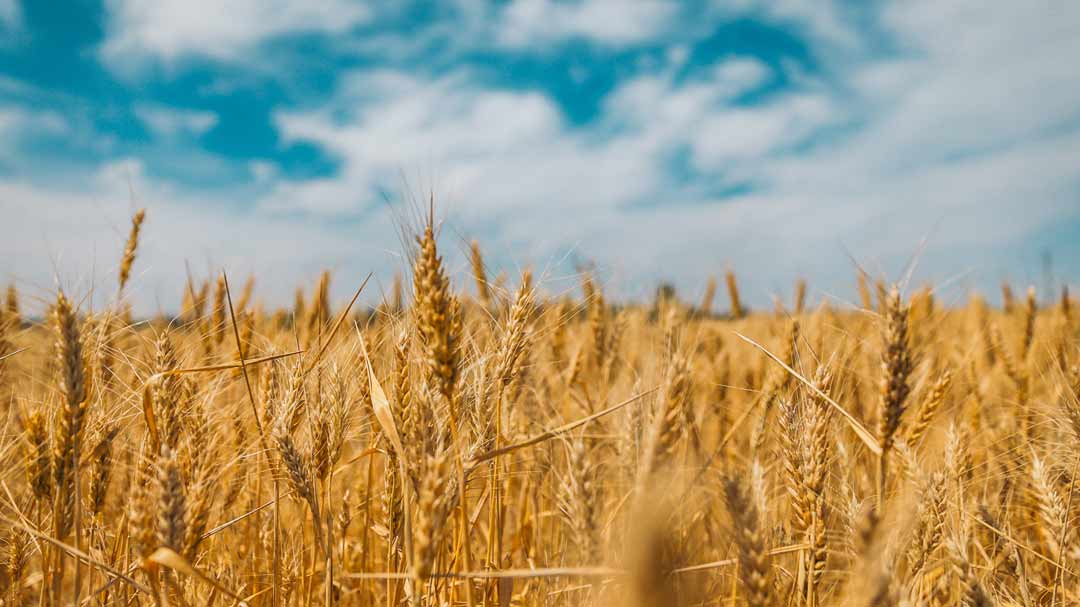I have been observing a gluten phenomenon for past few years.
Around 8 years ago when I started as a community pharmacist in UK I knew very little about it. While working in the community pharmacy I had few patients with celiac disease so I got some experience with that matter. Since then gluten and gluten free foods have turned completely into a trend that almost everyone should follow…
Gluten-Free or No-Gluten…
In the supermarkets you can find many products which you would not expect to be described as Gluten-Free or No-Gluten… Bread and other obvious foods like pasta or pizza contains gluten but why crisps and chocolates too? It sounds a bit over the top. And it goes beyond that!
When we look around and let’s say we decide go for ice cream. Few years back I do not recall having to choose if I want gluten-free ice cream or not?! Ice creams nowadays are often advertised as gluten-free product – not that I was aware that they can contain gluten in the first place? (unless they have a natural flavour of bread, pizza or spaghetti bolognese …;)
Other example is when we want to have a beer. Suddenly we have a choice of gluten-free beers. Hmmm… Is it me or things have changed? I do not remember seeing that few years back… It is worth checking as you can easily find that actually barley after a process of fermentation of and its final product beer does not have much gluten protein left in. So per se beer is a gluten free product. But it has always been like that not that it happened recently…
What actually is gluten?
Gluten is a protein which naturally occurs in certain grains. Most of us know that if you are gluten intolerant you can not eat wheat products. Wheat contains gluten so anything made of wheat flour like pasta, dough for bread or pizza are big no no. However not many people is aware and I just have found that recently myself that many other grains contain gluten-similar proteins. What it basically means those foods and proteins act very similar to gluten protein from wheat! In practice it is not simply enough to give up wheat products to stay gluten-free- you should avoid all of other grains too! What are those other grains? Gluten similar proteins are in oats, rye, corn, buckwheat, spelt, barley, kamut (khorasan wheat) and rice except red rice…So what is left then, if anything?! Yes following grains are completely gluten free: millet, quinoa and amaranth.
How come suddenly we have so many people intolerant to gluten?
Those grains have been around for hundreds or thousands of years and most of them became a base of many everyday foods. Maybe has gluten somehow changed and we are not able to adapt to it? Obviously the answer is not easy and straightforward. Yes, there are sufficient proofs that gluten in the wheat has changed over the years. It is better to say that modern wheat is completely different than it was 40 – 50 years ago because of genetic modifications to achieve more efficient crops.
Most importantly the way we use wheat has changed. In the past we used wheat flour in a fermented form to make a sourdough bread. Fermentation process is essential to breakdown gluten proteins to more digestible form. Unfortunately nowadays most commercially available bread has very little to do with sourdough from the past… Other important thing to mention is that gluten started to be used in the processed foods as an additive to keep moisture and elasticity of the the products. Which simply means in recent years we have been eating far more gluten than before in the form which not necessarily is friendly to our digestive system… Why not friendly?
Gluten in not-fermented form is only partially digested
If your digestion is sensitive it can cause all sorts of issues from very minor to mild or even symptoms you would not connect with actually gluten intolerance but we going to get there…
Until not long time ago I could not grasp fully importance of gluten free-diet. The situation has changed when I booked an appointment for my fiance to see kinesiologist about his general health. (yes it is the same kinesiologist I saw myself if you have red my previous blog.) So Alex has quite normal digestion but often experiences bloating and gases. His main health complaint is a shoulder weakness which he has experienced since childhood. Also he has a tendency to get muscle injuries especially when he stops doing exercises for some time.
Unusual symptoms of gluten intake
Taking about unusual symptoms I would never connect shoulder weakness with digestive system. So what kinesiology appointment showed? Kinesiology testing showed that Alex has muscle weakness (in kinesiology terms ¨not firing¨ so it is yin) in the muscles responsible for key organs like large bowels, liver, kidneys and spleen. Further investigation and allergy testing has shown wheat and gluten-similar grains intolerance! How to see a connection between yin muscle and muscles weakness with gluten intolerance was not so obvious to me. Hearing an explanation from a specialist it all started to make sense.
What is an intolerance?
Intolerance means that our body reacts to a trigger (allergen) with some kind of chronic inflammatory reaction which could be mild, modern or severe. Obviously our body is trying to compensate reaction to the trigger as much as possible.
In case of Alex it is a mild bowel symptoms but also weakness of muscles in the shoulders. As kinesiologist explained when Alex does physical exercises regularly the muscles are strong, he doesn’t have any pain. Minor but chronic inflammation of the muscles is being override by physical effort. The minute he stops exercising regularly muscles are prone to inflammation from the gut which makes them weaker and the pain reappears. Generally speaking the minor but chronic inflammation of the bowel causes muscles weakness and pain which physical exercises compensate as long as they are performed.
Diagnosis and what next?
I hope that is clear enough…It’s great to know your diagnosis however what to do next?! Well it may not sound more simple as to eliminate all possible triggers from your diet and see if symptoms improve. Alex was recommended to try gluten free and gluten similar grains free diet for one month. After that period of time gluten similar grains can be introduced slowly in the diet but only twice a month. Products made of wheat should he ideally avoided. Basically he should follow diet which is called Paleo diet- a meal should include some meat, some vegetables with quinoa, amaranth or potatoes. Diet should be full of fruits and vegetables, dairy products are okay in moderation but unfortunately things which you can find in bakery or whole Italian cuisine is a big no no…
He has not taken a gluten free month challenge yet for few reasons. We are still travelling in Asia* so often rice or noodle dishes are the only options in the menu. Also while you travel you want to enjoy your meals and not thinking that you cannot eat this or that. And the last but the most important reason he is still in denial about it… which is fine with me. Who doesn’t love pizza ?
*We came back 2 weeks ago. Let’s see if situation changes soon
Conclusion
In conclusion I want to say that there is a lot of misinformation and different believes about gluten. One study done on gluten intolerant patients showed that group who stayed off all gluten (and gluten similar grains) for a month and after that period of time had an organic sourdough bread (fermented gluten) introduced into their diet could eat it without previous effects of bloating or other digestive issues. Protein of gluten in the fermented form is different than not fermented one which I described before. Our body can digest it much easier without causing inflammation in the gut.
So if you suspect that your gut might not be happy about modern foods with gluten try to do experiment- stop eating them for one month and see what happens. Then introduce them slowly and preferably in the fermented form ( like in case of sourdough bread or sourdough pizza). It can be as simple as your body can’t digest enormous amounts of modern gluten. Unless you try you won’t know.
Negative fame of gluten mostly is a consequence of his hidden presence in the modern foods, which can have a negative affects on our body and well-being.
And yes cholesterol is the next one … let me think where should I start- please check my next blog to find out.
References:
-
Adolf Brown D.C. and Mayla Lambert Amaron – Applied Kinesiology Manual Module 1.
-
Benjamin Niland, MD and Brooks D. Cash, MD Health Benefits and Adverse Effects of a Gluten-Free Diet in Non–Celiac Disease Patients
-
Donald D. Kasarda Can an Increase in Celiac Disease Be Attributed to an Increase in the Gluten Content of Wheat as a Consequence of Wheat Breeding?

